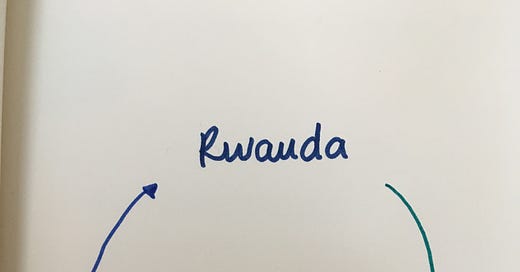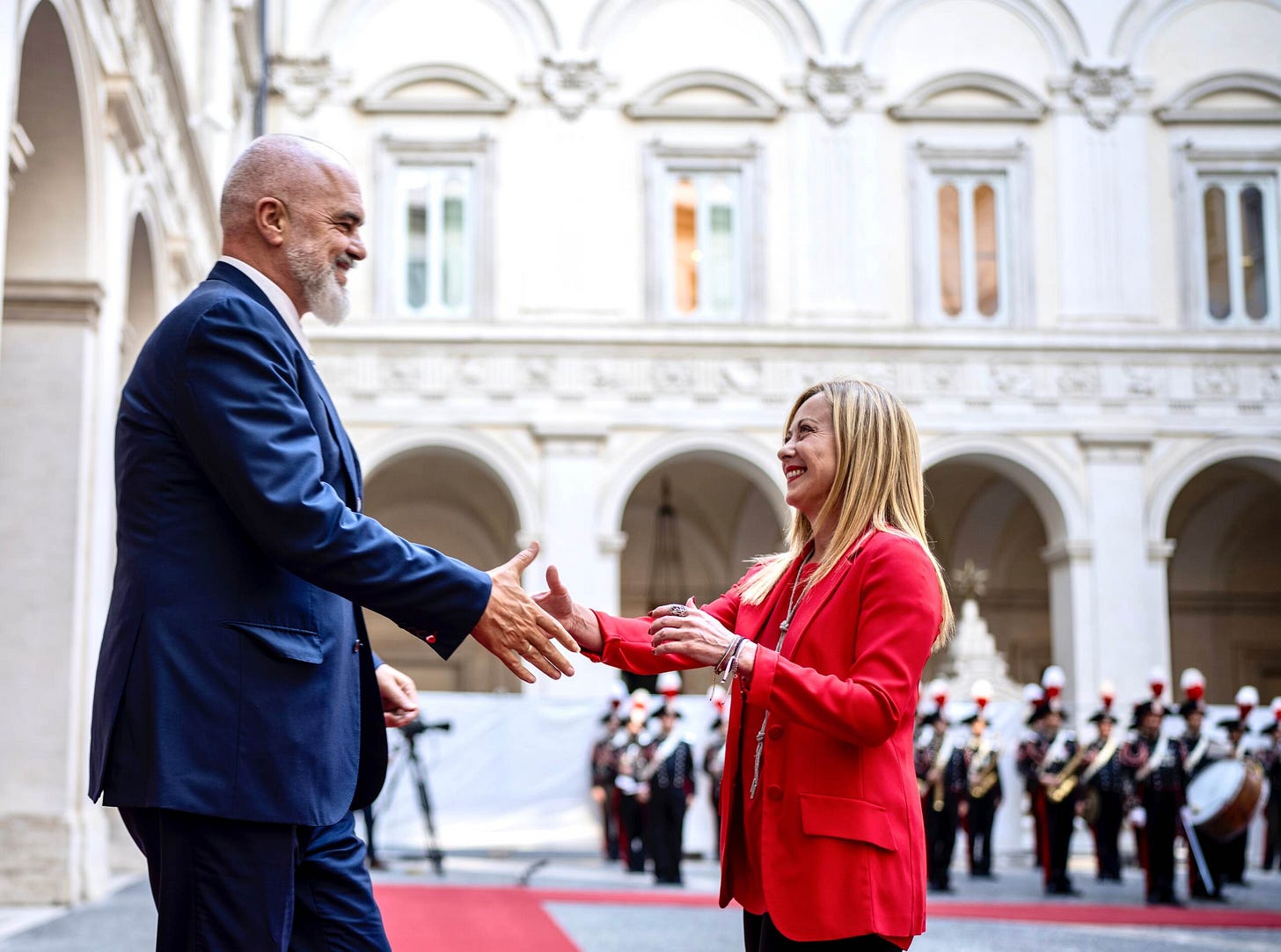Edi Rama and Giorgia Meloni got it wrong (2)
My generation is terrified of disappearing. I am not, as I think obsessing so much of a feared extinction is making the apparently few decades we have to live left terrifying. But it is better to be safe than sorry so I try to play my part too to avoid our extinction. I cannot be asked to become vegan or vegetarian. I come from the Balkans and to ask me to give up on meat entirely would be culturally insensitive. My grandma passed away still convinced that chicken isn’t meat.
But living in Belgium has made it practically possible. I am almost vegetarian out of poverty, more than out of conviction. I diligently recycle, a habit cultivated during my life in Lombardy, and my commitment extends to my wardrobe—I predominantly wear second-hand clothes and often swap with friends. This is my humble contribution to the cause. I have never made it into a badge of honor though.
What I could never have imagined is that the notion of human life being disposable would take root in our so-called civilized society. The idea that people could be swapped like clothes at a second-hand market of environmentally conscious hipsters in Europe never crossed my mind. Equally improbable was the thought that such discussions would occur without much protest from the same environmentally conscious individuals. But here we are.
Who had this genius idea first? Boris Johnson’s government announced a signed memorandum of understanding (MoU) with the government of Rwanda to establish a migration and economic development partnership. Under the agreement, individuals applying for asylum in the UK could potentially be transported to Rwanda for their asylum application to be considered there. The asylum partnership has been controversial, and the form of the agreement—a non-binding MoU instead of a full treaty—has faced criticism for not receiving sufficient parliamentary scrutiny.
The UK deems most asylum applications as inadmissible if the applicant has passed through a “safe third country” before journeying to the UK. Those removed to Rwanda, whose claims are successful, would not be eligible to return to the UK but could settle in Rwanda as refugees. Those with unsuccessful claims could be removed from Rwanda to a country in which they have a right to reside.
As of now, no asylum seeker has been removed from Rwanda due to legal challenges. A planned flight to Rwanda with asylum seekers on board was prohibited from leaving the UK in June 2022 because of an injunction from the European Court of Human Rights. In December 2022, the UK High Court upheld the overall lawfulness of the policy. In January 2023, the High Court granted permission for a partial appeal of the ruling.
A few months ago, I hopped into a taxi in Brussels and struck up a conversation with the driver, as I always do. Taxi drivers often prove to be great political teachers, and this one did not disappoint. Curious about his perspective, I asked him whether he believed the favorable image of President Paul Kagame was deserved. I'll never forget the bitter laugh he let out before recounting that his brother had been taken by the government just 10 days earlier, and his family still had no idea of his whereabouts. The bitterness in his tone mirrored my own when people insist I should be proud of how well Albania is supposedly doing.
I understand that bitterness, just as I feel it when people tell me to be proud of Albania's apparent success. Despite news and articles praising our natural beauties, the reality is different—my dream of a bustling Albania full of tourists fades as soon as they leave in September. It seems a similar situation with Kagame. While some international organizations and development partners laud him for progress in various sectors, there's a darker side. Kagame is perceived by some as a strong leader with a vision for Rwanda's future, described as decisive and forward-thinking. However, it's hard to overlook his repression of political opposition, arrests of opponents, and restrictions on freedom of speech and media.
Regardless, Kagame has ensured economic growth, making significant strides in infrastructure, technology, and business development. He's also pioneered Rwanda as one of the first countries globally to ban plastic bags, contributing to a cleaner, greener environment. I wonder if, for some in Europe, these achievements are enough to overshadow the troubling disposability of human lives that is occurring.
Is economic progress enough to overshadow the lack of human rights?
Are we inherently hypocritical when we demand countries with a colonial past to mirror our policies regarding environmental protection but turn a blind eye to the disrespect of human rights?
I have my opinions but I’d like to know your views.
Surprisingly, the idea seemed appealing to other leaders, unfortunately, those leaders happen to be the respective Prime Ministers of Italy and Albania, both countries of which I am a citizen—one by birth and the other after 20 years of mastering their hand gestures and becoming an absolute snob about food.
The two met in Rome at the start of November. Albania agreed to give temporary shelter to some of the thousands of migrants who reach Italian shores while their asylum bids are being processed, offering its neighbor across the Adriatic Sea some relief in managing some of the arrivals. Italy will pay for the construction of two centers in Albania which can hold up to 3,000 migrants at a time, under the deal. Children and pregnant women will be excluded from the plan. If Italy rejects the asylum bids, Albania would deport the migrants. Albania would also provide external security for the two centers, which would be under Italian jurisdiction, Meloni told reporters.
It’s been a week since then and I had time to reflect on colonialism mindset and migration. And, on how the notion of “gratitude” has been misplaced lately.
(2 of perhaps 3)
Vilma Djala





